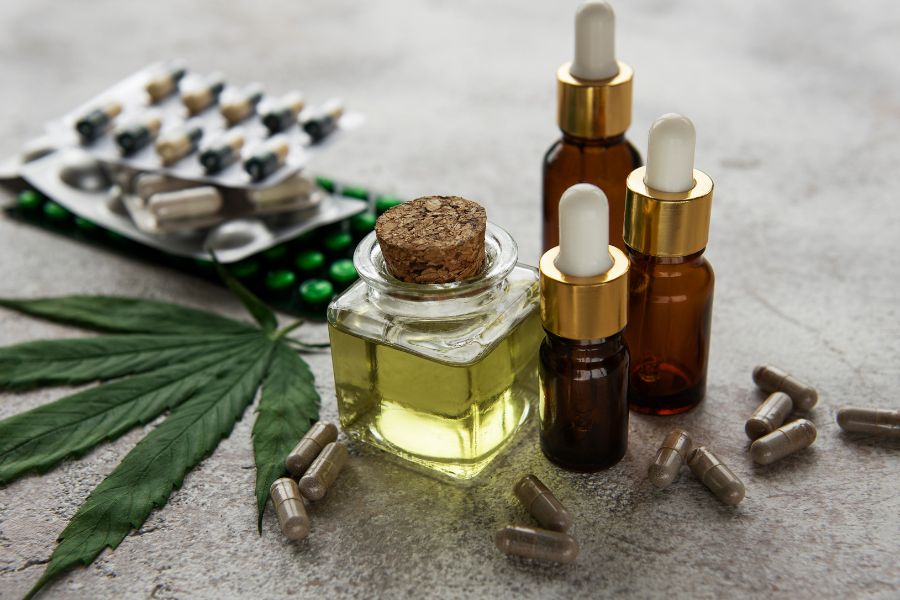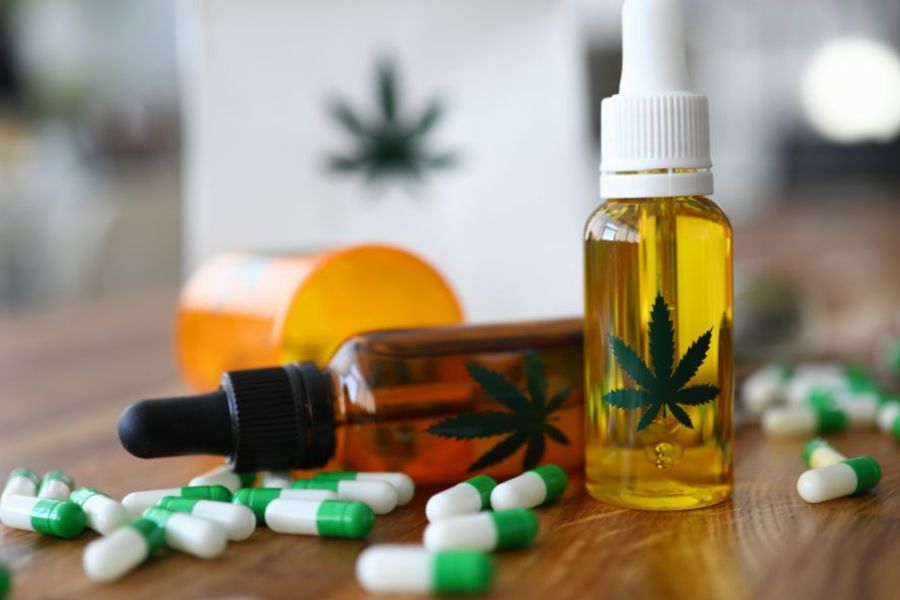Taking the advice “if you can’t beat them, join them,” the British Columbia province of Canada recently decriminalized some hard drugs TEMPORARILY. Following Canada’s federal minister of Mental Health authorization, possessing some illicit drugs is legal from Jan 31, 2023 – Jan 31, 2026.
Such news often invokes several legal questions regarding drug use in Canada. Struggling with confusion, you may wonder: what drugs invite criminal penalties?
We understand your concerns, so we’ll dive into what drugs are legal in Canada. Taking it a step further, we’ll outline certain illegal drugs you must avoid.
Recreational Cannabis and Medical Marijuana
It’s no secret that Canada is a progressive nation regarding cannabis legalization and regulation. Recreational cannabis is legal nationwide, with various products sold in licensed stores and online dispensaries. Whether for medical or recreational purposes, obtaining weed in Canada is legal and accessible.
Medical marijuana has been legal since 2001 and can be prescribed for those with qualifying illnesses or physical conditions to relieve symptoms. Regulations around medical marijuana vary by province, with different limits on how much you can have in your possession at any time.
It’s also vital to note that you must buy marijuana from a federally licensed company to ensure it is safe and compliant with Canadian law.
Why Did Canada Legalize Drug Use?
The hard drugs world has always been muddied by potential harm like addiction. So much so that some people vehemently identify with the opposing side of drug use. The debate for and against the legality of drugs is long-term.
But for now, we’ll explore the key reasons why Canada has taken this bold step to legalize some drugs:
Harm Reduction
Canada’s primary motive for legalizing hard drugs is rooted in harm reduction strategies. By decriminalizing the possession and use of substances, the federal government aims to shift the focus from punitive measures. And shine the spotlight on prevention, treatment, and support for individuals struggling with addiction.
They also seek to promote more trust in health and social services. This empathetic approach to the battle against the toxic drug crisis acknowledges that addiction is a complex issue that requires a compassionate response.
Public Health Approach
Legalization allows for a regulated market where hard drugs can be produced and distributed under strict quality control standards. This ensures that substances are not contaminated or adulterated, reducing the risk of overdose and associated health complications.
Moreover, by decriminalizing hard drugs, the government may implement targeted public health initiatives to educate individuals about the risks. Or provide harm reduction tools and access to treatment and rehabilitation programs.
Reducing Stigma
Criminalizing drug use often perpetuates stigma, creating barriers for individuals seeking help and support. Thus, the legalization of hard drugs destigmatizes addiction and curbs drug-related crime. It also prioritizes treating addiction as a health issue rather than a criminal offense. This change in perspective encourages individuals to come forward, seek assistance, and engage in a more open and supportive dialogue.
Addressing the Underground Market
The illegal drug market is associated with violence, organized crime, and unsafe practices. By decriminalizing hard drugs, Canada aims to undermine the underground market, removing its profit incentives and reducing its influence.
A regulated market ensures that individuals have access to safer substances. Besides, it eliminates the need to resort to illicit sources, mitigating associated risks and protecting public safety.
Redirecting Resources
The criminalization of drug use often burdens the justice system and law enforcement resources. With hard drugs being legal, the country can redirect these resources toward prevention, treatment, and support programs. This bolsters the focus on addressing the root causes of addiction and supporting individuals in their journey to recovery.
Note that regardless of the legality of any drugs or the quantity in your possession, drug trafficking is illegal.
How Canada Regulates The Use Of Drugs To Strike A Balance

With a focus on public health and safety, the Canadian government has implemented a comprehensive regulatory framework that drives responsible drug use and mitigates potential risks.
Let’s take a closer look at how Canada regulates drug use:
Cannabis Legalization
In 2018 Canada became the first G7 country to legalize recreational cannabis nationwide. Through a regulated market, the government controls the production, distribution, and sale of cannabis products, ensuring quality standards and age restrictions.
This approach has empowered individuals to make informed choices and curtailed the influence of the illegal market.
Medicinal Cannabis
Canada’s regulatory system extends to medicinal cannabis, allowing healthcare practitioners to prescribe cannabis-based treatments for various health conditions. This enables patients to receive safe and reliable products backed by rigorous quality control measures.
The regulatory framework fosters scientific research and innovation, expanding our understanding of the medical potential of cannabis.
Prescription Drugs
The regulation of prescription drugs in Canada is stringent, safeguarding the health and well-being of its citizens. Health Canada, the regulatory authority, evaluates and approves drugs based on their safety, efficacy, and quality.
This rigorous process prevents the circulation of counterfeit or unsafe medications and exposes patients to reliable treatments.
Controlled Substances
Canada enforces Controlled Drugs and Substances Act regulations to manage substances with potential abuse or addiction. The legislation classifies drugs into different schedules based on their potential harms and restricts their possession, distribution, and production. The aim is to balance access for legitimate medical purposes while preventing misuse and protecting public health.
Harm Reduction Initiatives
In addition to regulation, Canada has embraced harm-reduction strategies to minimize the risks associated with drug use.
These initiatives focus on prevention, education, and support for individuals struggling with addiction.
What Drugs Are Legal In Canada?
Hemp Oil and Cannabidiol Products
Certain cannabis-based products in Canada are legal, including Hemp Oil and Cannabidiol (CBD).
Hemp Oil is a product made from hemp flower that has been processed to produce a concentrated extract with high levels of cannabidiol. It’s commonly used for therapeutic purposes, whether for pain relief or to improve mood and energy levels.
CBD products should contain less than 0.3% THC (the component of marijuana responsible for the psychoactive effects) to be sold legally in Canada.
Psychedelics
You may be wondering: are psychedelics legal in Canada? The answer is a qualified “yes,” – depending on the type of psychedelic.
Two kinds of psychedelics are legal in Canada, though subject to some restrictions – magic mushrooms and ayahuasca.
Stimulants
Caffeine and nicotine products fall under legal stimulants in Canada even though they’re not technically drugs. You can get your hands on various products, from energy drinks to cigarettes, without issues.
Alcohol, Kava, and Kratom
Depressants, while not necessarily the safest class of drugs, are sometimes legal in Canada. Alcohol, the most common and widely available depressant, is permitted as long as it is regulated and sold by a licensed distributor.
In addition to alcohol, two other depressants are legal in Canada: Kava and kratom. Kava is an herbal supplement with calming and anti-anxiety effects. You can buy this online without a prescription. Kratom is a plant-derived substance with mild stimulant effects available in some health food stores.
Common Medications and Supplements
When it comes to medications and supplements, many of us know our way around the health section of the grocery store.
These medicines and accessories can be bought over the counter without a prescription, from ibuprofen to vitamins. But are they legal in Canada?
The answer is yes. In Canada, you can legally buy a wide variety of over-the-counter drugs and supplements without a prescription, including:
- Painkillers like ibuprofen and acetaminophen
- Cold medications like decongestants, cough syrups, and antihistamines
- Allergies medications such as antihistamines
- Vitamins and minerals for general health maintenance
- Herbal remedies like echinacea
Illegal Drugs In Most Canadia Provinces
The following are currently illegal drugs in Canada.
- Cocaine
- Heroin
- Methamphetamine
- LSD
- MDMA (Ecstasy/Molly)
- Psilocybin (Magic Mushrooms)
- Ketamine
- GHB (Gamma-Hydroxybutyric Acid)
Note that some illegal drugs fall under the temporarily decriminalized drugs in British Columbia.
Key Takeaways
In short, some drugs are considered legal in Canada, but it’s essential to be aware of the laws that govern drug use in the country.
Ensure you research the laws covering legal drugs in Canada and what other activities the law considers legal.
Not only can this help you stay on the right side of the law, but it can also keep you safe while consuming drugs.
The use of legal drugs can still be dangerous. Therefore, you must take the necessary precautions for safety.

